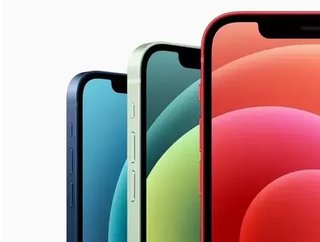Is the iPhone 12 mini a throwback that the industry needs?

At a time when smartphones have spent the last several years getting progressively bigger could one of Apple’s latest releases buck the trend, perhaps even pivoting the industry in a new, more compact direction?
After months of delays, largely thanks to the ongoing COVID-19 pandemic, Apple has finally kicked off its next release cycle. The company released two new iPhones on Tuesday: the iPhone 12 and the iPhone 12 mini.
With sharper edges than the rounded-off look that permeated the iPhone 11 and iPhone X, Apple’s new generation of smartphones seem to be paying aesthetic tribute to earlier generations like the iPhone 5, before the iPhone 6 gave us the smoother, pebbly edged handsets of the last five years.

The sharper profile isn’t the only way that Apple is embracing its past decisions, however. Measuring a modest 5.4 inches, the new iPhone 12 mini is the smallest flagship phone Apple has released since the iPhone 6 in 2014.
Apple itself has claimed that the iPhone 12 mini is the “smallest, thinnest, and lightest 5G smartphone in the world,” a fact that has some analysts predicting an industry heel turn in the face of the last five years of bigger and bigger devices.
“The big news for me is the iPhone 12 mini,” commented Ben Wood, a tech consultant at CCS Insight in an interview with The Guardian. “After years of phones getting progressively bigger, Apple is reversing the trend by offering a flagship product in a smaller package. I think it’ll be a hugely popular move. Where Apple goes, others follow, and I expect all rivals to make similar moves over the next 12 months.”
Current conventional wisdom has pointed to new phones remaining largely in the 5.5-inch+ category for the foreseeable future. Estimates of smartphone shipments predict that the 6-inch+ category of phones would grow, from 295mn units in 2018 to 660mn units in 2022. The sub-5-inch category, on the other hand, is predicted to shrink down from 150mn units in 2018 to just 25mn in a few years time.
Probably the prime example of this trend has been in the folding phone space, where initial models seemed to focus on getting a tablet to shrink down to the size of a modest brick, rather than getting your average flagship phone the size of a roofing tile to fold down into a profile that actually fits in a human pocket (but I digress).
Apple, so often a trend setter in this space, and one of the few smartphone manufacturers to maintain positive growth in the face of COVID-19 (largely thanks to sales of its compact iPhone SE) could be about to prove that bigger doesn’t necessarily equal better.
The new iPhone 12 mini manages to pack some seriously premium features into a very retro-sized body. It has a fantastic screen-to-body ratio (especially if you compare it to the budget iPhone SE from the last cycle - all bezels) which shows off Apple’s Super Retina XDR display with a 2mn-to-1 contrast ratio.
Under the hood, the iPhone 12 mini has one of the new generation A14 Bionics, which deliver some of the best benchmarks in the industry - firmly beating out Qualcomm’s flagship Snapdragon 865+, which is also optimised for 5G. It also packs iOS 14 out of the box, which brings a whole new level of functionality and customisability to Apple’s software.
In short, while I don’t think that the iPhone 12 mini is going to convert any Android users who desperately want a smaller phone, I do believe that the next release cycle is going to see Android manufacturers scrambling to bring their own compact devices to market.






